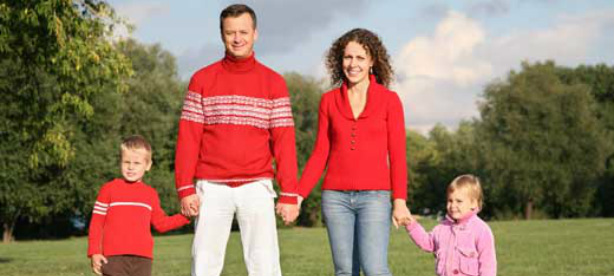|
Children are to respect and obey their parents.
Pray for God’s guidance and help in raising your children.
Treat children gently and in love.
Patience, mercy, and reasoning are the most effective.
Parents are responsible to both teach and set a good example for their children.
Parents are responsible to correct their children when necessary.
Godly parenting will guide children all through life.
Based on an article from Activated magazine. Image courtesy of photostock/freedigitalimages.net
0 Comments
Taken from “Mr. Washington”, by Les Brown
One day in 11th grade, I went into a classroom to wait for a friend of mine. When I went into the room, the teacher, Mr. Washington, suddenly appeared and asked me to go to the board to write something, to work something out. I told him that I couldn’t do it. And he said, “Why not?” I said, “Because I’m not one of your students.” He said, “It doesn’t matter. Go to the board anyhow.” I said, “I can’t do that.” He said, “Why not?” And I paused because I was somewhat embarrassed. I said, “Because I’m Educable Mentally Retarded.” He came from behind his desk and he looked at me and he said, “Don’t ever say that again. Someone’s opinion of you does not have to become your reality.” It was a very liberating moment for me. On one hand, I was humiliated because the other students laughed at me. They knew that I was in Special Education. But on the other hand, I was liberated because he began to bring to my attention that I did not have to live within the context of what another person’s view of me was. And so Mr. Washington became my mentor. Prior to this experience, I had failed twice in school. I was identified as Educable Mentally Retarded in the fifth grade, was put back from the fifth grade into the fourth grade, and failed again when I was in the eighth grade. So this person, Mr. Washington, made a dramatic difference in my life. I always say that he operates in the consciousness of Goethe, who said, “Look at a man the way that he is, and he only becomes worse. But look at him as if he were what he could be, and then he becomes what he should be.” Mr. Washington believed that “Nobody rises to low expectations.” This man always gave students the feeling that he had high expectations for them and we strove--all of the students strove—to live up to what those expectations were. One day, when I was still a junior, I heard him giving a speech to some graduating seniors. He said to them, “You have greatness within you. You have something special. If just one of you can get a glimpse of a larger vision of yourself, of who you really are, of what it is you bring to the planet, of your special- ness, then in a historical context, the world will never be the same again. You can make your parents proud. You can make your school proud. You can make your community proud. You can touch millions of people’s lives.” He was talking to the seniors, but it seemed like that speech was for me. I remember when they gave him a standing ovation. Afterwards, I caught up to him in the parking lot and I said, “Mr. Washington, do you remember me? I was in the auditorium when you were talking to the seniors.” He said, “What were you doing there? You are a junior.” I said, “I know. But that speech you were giving, I heard your voice coming through the auditorium doors. That speech was for me, sir. You said they had greatness within them. I was in that auditorium. Is there greatness within me, sir?” He said, “Yes, Mr. Brown.” “But what about the fact that I failed English and math and history, and I’m going to have to go to summer school? What about that, sir? I’m slower than most kids. I’m not as smart as my brother or my sister who’s going to the University of Miami.” “It doesn’t matter. It just means that you have to work harder. Your grades don’t determine who you are or what you can produce in your life.” “I want to buy my mother a home.” “It’s possible, Mr. Brown. You can do that.” And he turned to walk away again. “Mr. Washington?” “What do you want now?” “Uh, I’m the one, sir. You remember me—remember my name. One day you’re gonna hear it. I’m gonna make you proud. I’m the one, sir.” School was a real struggle for me. I was passed from one grade to another because I was not a bad kid. I was a nice kid; I was a fun kid. I made people laugh. I was polite. I was respectful. So teachers would pass me on, which was not helpful to me. But Mr. Washington made demands on me. He made me accountable. But he enabled me to believe that I could handle it, that I could do it. He became my instructor my senior year, even though I was Special Education. Normally, Special Ed students don’t take Speech and Drama, but they made special provisions for me to be with him. The principal realized the kind of bonding that had taken place and the impact that he’d made on me, because I had begun to do well academically. For the first time in my life I made the honor roll. I wanted to travel on a trip with the drama department and you had to be on the honor roll in order to make the trip out of town. That was a miracle for me! Mr. Washington restructured my own picture of who I am. He gave me a larger vision of myself, beyond my mental conditioning and my circumstances. Years later, I produced five specials that appeared on public television. I had some friends call him when my program, “You Deserve,” was on the educational television channel in Miami. I was sitting by the phone waiting when he called me in Detroit. He said, “May I speak to Mr. Brown, please?” “Who’s calling?” “You know who’s calling.” “Oh, Mr. Washington, it’s you.” “You were the one, weren’t you?” “Yes, sir, I was.”  One of the most precious gifts any of us could ever receive is to become a parent and receive God's love in the form of a little child, so sweet and beautiful. They're all His children, really, but He entrusts them to our care and wants us to love and train them. They're a gift of God but, like flowers in our garden, we've got to take care of them. It's a case of God's gift also being God's work. God Himself has set the example of how He wants us to be with our children. He is just and merciful and loving and patient, but He also deals with us firmly when He sees that we're getting off the track. He is a loving God, but He's also a very good Father who knows how to correct us when we need it. If we teach, train, and lead our children right and set the right example, they will carry that all through life. "Train up a child in the way he should go: and when he is old, he will not depart from it" (Proverbs 22:6). "All your children shall be taught by the Lord, and great shall be the peace of your children" (Isaiah 54:13). - David Berg, courtesy of Activated Magazine. Excellent parenting tips that can apply to children of all ages. Courtesy of Tommy's Window.  Héctor Medina My grandpa used to say, "If you see well-behaved children, you can be sure that someone is using both hands in bringing them up—the right hand of love and the left hand of discipline." In the 25 years that I have been a teacher, that maxim has been a cornerstone of my daily interactions with my students. Perhaps you've heard the analogy that likens youngsters to small plants. Plants need water and sunshine, but they also need attention in the form of fertilizing, pruning, fumigating, transplanting to larger pots, etc.—attention that requires work on the part of the gardener and can be a temporary shock for the plant. In the case of young people, that means giving them tender loving care first and foremost, while not neglecting the other things that are necessary parts of character building, like providing a healthy environment for their social development and emotional and spiritual growth, setting limits, teaching them to take responsibility for their actions, and allowing them to learn through suffering the consequences of their own poor decisions, if necessary. These more difficult aspects of parenting and mentoring are usually also the ones that are the most difficult for young people to accept, especially in the beginning, but we owe it to them and to God, to whom they and we will ultimately need to give account of our lives. There is a lot of talk these days about troubled teenagers and the exponential impact they have on society as their influence spreads to their peers, younger children, and eventually their own children. And the same questions keep being asked: How did we get in this state? And how do we get out? Can we steer our ship back on a godlier course, or is it too late? I believe there is always hope, with God's help, because all things are possible for Him (Matthew 19:26). But He can't and won't do it alone. He needs us parents, teachers, and other adults to be mentors and role models for our young people. Our part is to buck the trends of passiveness, permissiveness, and a general lack of definite moral standards that sadly have become norms in parenting and education today. But if we will each do what we can, God will do what we can't. He will bring about the inward changes that our children need and help them want to do their part, to do the right things with the right motivation. With time, they can become forces for positive change themselves, but it starts with us adults. We need to take the reins—with both hands.  I had lost all sense of time that hot July morning as I leaned on my hoe handle and let my imagination indulge me in projects more exciting than hoeing corn. Then suddenly I saw Grandpa-until that moment my role model of kindness and compassion-coming through the field, walking rapidly between the rows and swinging a long, keen maple switch. Now I’ve done it, I thought as I realized I had crossed the limits of his forbearance. I began to hoe the young corn as fast as my 11-year-old arms would move, not daring to look up as I heard his footsteps on the plowed ground and the corn brushing against his legs. Stunned by the reality of what was about to happen, I remembered the time he told me, “Jesus cried sometimes, but He could be tough when He needed to be.” Grandpa was going to be tough with me-for the first time in my life. That summer I was 11, and the Great Depression’s hard times still lingered in Tennessee. Most mountain people depended mainly on the food and livestock they raised on their small farms. On that morning, I was in the roastin’ ears patch to hoe so that Grandpa could finish up his plowing. “Don’t let him piddle along,” Dad had told Grandpa. “Dust his britches if he needs that, but don’t let him jest play along and lean on that hoe handle. He’s had some lazy spells lately.” Dad was afraid Grandpa would be too lenient with me, for I had heard him tell Ma, “Pa is jest too softhearted for his own good sometimes.” One of the great moments of my young life was that day the past summer when I overheard Grandpa tell a visiting preacher that I might turn out to be his best grandchild because I “hankered after things of the mind.” But “things of the mind” had possessed me that morning. As I leaned on my hoe handle, slapping now and then at the sweat bees and corn beetles, my thoughts were at the creek where I had been planning to build a dam across the narrow crossing. I would dam up the creek with mud, leaves, and rocks, and then make boats from bucket lids and old cigar boxes and have a navy on the high seas. Absorbed in my engineering project, I did not even notice that Grandpa was no longer calling out “Gee” and “Haw” to the mule in the nearby field. Then I saw him coming toward me, walking swiftly between two rows of corn with that maple switch in his hand, and I began to hoe. “Wait a minute, son,” he said softly. “Somethin’ I need to take care of. How’s yer hoe doin’ this morning’?” “It’s doin’ fine, sir.” “I don’t think it is, son. Let me have a look at it.” I handed him the short-handled hoe he had fixed especially for me, and he began to talk to it, holding it at arm’s length. “Hoe, I sent you here this mornin’ with my grandson to hoe this corn. You know this corn needs to be hoed. You know we’ll need roastin’ ears this fall-he’ll need some to take to school fer his lunch. But you wouldn’t hoe. Now, I’m going to have to tune you up a bit so you’ll help my grandson.” Then he whipped the hoe handle until the maple switch was broken and limp. As he tossed away the remnant of the switch, he handed the hoe back to me. “I believe it’ll do a better job this time, son.” “It’ll do much better, sir,” I assured him as I began to chop at the weeds with energy I had never realized. “I think it’ll do fine.” Grandpa turned and walked away. After a few yards he stopped and turned, tears in his big blue-green eyes. “Told yer ma you’d eat with us today, so don’t be late. Yer grandma’s cookin’ us a big peach cobbler, and she’ll be aggravated if we ain’t at that table on time.” - By Ernest Shubird, courtesy of Guideposts ****** The Best Way is the Love Way This is what God’s been patiently and lovingly trying to teach us all along: to do the right things with the right motivation, out of love. And using God’s example, we also should try to persuade others to do the right thing out of love. Certainly God has to have a lot of patience and love with us, so we should have patience and love with others! -David Brandt Berg  Charles and Carla Coonradt tell the story of an immense, 19,000-pound whale, Shama, that is taught in Sea World, Florida, to jump 22 feet out of the water and perform tricks. How do you suppose they teach the whale to do that? A typical parenting approach would be to mount a rope at 22 feet high out of the water, and encourage the whale to sail over it. “Jump, whale!” Maybe get a bucket of fish up there, reward the whale when it does the right thing. Set goals! Aim high! And you and I know the whale would stay right where it was. The Coonradts say, “So how do the trainers at Sea World do it? Their number-one priority is to reinforce the behavior that they want repeated—in this case, to get a whale or porpoise to go over the rope. They influence the environment every way they can so that it supports the principle of making sure that the whale can’t fail. They start with the rope below the surface of the water, in a position where the whale can’t help but do what’s expected of it. Every time the whale goes over the rope, it gets positive reinforcement. It gets fed fish, patted, played with, and most important, it gets that reinforcement. “But what happens when the whale goes under the rope? Nothing—no electric shock, no constructive criticism, no developmental feedback, and no warnings in the personnel file. Whales are taught that their negative behavior will not be acknowledged. Positive reinforcement is the cornerstone of that simple principle that produces such spectacular results. And as the whale begins to go over the rope more often than under, the trainers begin to raise the rope. It must be raised slowly enough so that the whale doesn’t starve, either physically or emotionally. “The simple lesson to be learned from the whale trainers is to over-celebrate. Make a big deal out of the good and little stuff that we want consistently. Secondly, under-criticize. Children know when they screw up. What they need is help. If we under-criticize, punish and discipline less than is expected, children will not forget the event and usually will not repeat it.” We need to make it difficult for children to fail, so there can be less criticism and more celebrations. Words for Loved Ones
By Maria Fontaine
Parenting is more than comforting children when they fall down, or making sure they get proper nutrition, and brush their teeth, and so on. Parents are responsible for their children’s spiritual training as well, and the foundation stone of that training is loving and consistent discipline—and when I say “loving,” I mean reasonable, even-tempered, and nonviolent. Children begin forming behavior patterns and their ideas of right and wrong very early in life, so the earlier you can start teaching them, the better. Discipline means training your children to lead a disciplined life, and eventually to discipline themselves. If discipline is something that you only do “to” children, the end result will be that as soon as they get out from under your control, they will go wild. But if you discipline them in the sense of consistently trying to teach them to lead disciplined lives, eventually they will be able to discipline themselves. Discipline is not only about correction or the consequences for unacceptable behavior, although those are each a very important part of it. Discipline starts with step-by-step teaching, setting clear boundaries and guidelines, setting a good example in your own behavior, and being consistent. If you’re like most parents, it was initially difficult for you to administer correction, and perhaps it still is. You love your children and don’t want to see them unhappy. You wish with all your heart that there was some way around it, that they could learn the lesson some easier way, but because you do love them, you correct them because you know it’s what they need and what will keep them from being hurt worse later. As the Bible says, discipline “yields the peaceable fruit of righteousness to those who have been trained by it” (Hebrews 12:11). You can’t expect children to learn good behavior on their own; it’s a long-term process that requires consistency, love, and fairness. It’s probably the biggest challenge and the hardest job you’ll ever face as a parent. It’s easier in some ways to just let them run wild and entertain themselves, but in the long run you’ll find that it’s much more worthwhile to do the hard work that is needed to discipline your kids. In fact, you’re in for a lot of heartache if you don’t. Until children learn the simple, basic lessons of obedience, respect, concern for others, self-control, and discipline, they won’t mature or reach their full potential. They’ll also be less happy and fulfilled in life, and they’ll probably make those around them less than happy too. And if you don’t give children loving, consistent discipline when they’re young, then when they get older they’ll be much harder to handle. You’ll wind up having to really crack down on them to keep them from hurting themselves or others—and it won’t be their fault. It will be your fault for not teaching them earlier, when the stakes weren’t as high. When you look at it that way, you’ll see that the loving thing to do is to teach your kids from the beginning, gently, lovingly, and consistently showing them how to make the right decisions, laying the boundaries for acceptable behavior, and administering some form of consequence when they cross those boundaries. So the first step is to believe that discipline is necessary, that your children not only need it in order to grow up to be productive and useful members of society, but also to be happy and secure in their relationship with you, their parent. Deep down inside, children know they need boundaries and want their boundaries to be defined, and they’re happier and more secure when they receive consistent, loving discipline. Once you make the commitment to be faithful in the training and discipline of your children, there’s another hurdle to cross, which is consistency. There will be times when you’re busy with other responsibilities, times when disciplining would be inconvenient or you will worry about what others would think, times when you don’t want to “spoil the moment,” and times when your children will try every trick in the book to talk you out of it. Unless you’re careful, situations and your own mood or energy level will have a greater bearing than they should on how you mete out discipline; you will either ignore misbehavior because you feel that would be more expedient, or you will resort to sharp words or nagging. But inconsistent discipline, for whatever reason, is confusing and even damaging for children and will only make it harder on you and them. By disciplining consistently, you will need to discipline less, because your children will learn their lessons quicker. If you’re going to discipline your kids, you have to be involved in what they’re doing. When you make the commitment to train your children to lead disciplined lives, you’re also making a commitment to spend more time with them, because it does take being with them and tuning in to them. You might not enjoy the moments when you have to correct them or discipline them, and at the time it will seem like a lot more work to teach them the right way to do something rather than just letting them do what they want to do. But in the long run, you’ll find that you’ve saved yourself a lot of work, and you’ll enjoy your times with your children much more. Consistently administering loving discipline has great rewards. In the end, not only will your children love, respect, and enjoy being with you more, but you will feel the same way about them, because you will have helped bring out the best in them. Taken from the Activated Magazine. Used with Permission |
Categories
All
Archives
March 2024
LinksFree Children's Stories |



 RSS Feed
RSS Feed
